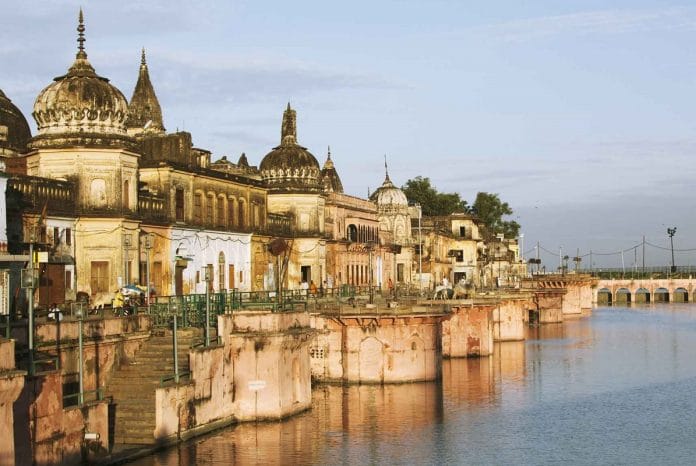New Delhi: An unexpected development threatened to overshadow the hearings in the decades-old Ayodhya land dispute case on its last day in the Supreme Court Wednesday.
As proceedings began on the 40th day of the hearing, there was a buzz in the court that the Sunni Waqf Board had decided to give up its claim on the land and withdraw from the title-suit case.
The murmurs had actually begun Tuesday evening, after the vernacular press in Uttar Pradesh reported that the waqf board had decided to surrender its rights under the orders of its chairman Zafar Ahmad Faruqui.
By Wednesday morning, it was being reported that the board had actually filed an affidavit in the Supreme Court surrendering its rights over the disputed site. But no such affidavit had been filed.
However, a report by the mediation panel, led by former Supreme Court judge Justice Fakir Mohammad Kalifullah, was submitted to the top court Wednesday. The contents of this report remain confidential as ordered.
This sudden reported move to withdraw from the case — which the board had intensely argued for over 20 days, citing how a mosque was built by Mughal emperor Babur and not by demolishing a temple — made headlines and raised eyebrows as it came in the wake of three FIRs filed against Faruqui.
The Yogi Adityanath-led Uttar Pradesh government has even recommended a CBI inquiry against Faruqui for his alleged involvement in illegal sale and purchase of land for the board.
Also read: Why former AMU vice-chancellor Zameer Uddin Shah wants Muslims to give up Ayodhya claim
Lawyer refutes rumours
Rajeev Dhawan, senior advocate and counsel for waqf board, told ThePrint that no such stand was taken by the board nor was any affidavit filed.
“None of the Advocates on Record for Sunni Waqf Board nor I got any instructions that the rights have been surrendered… nor any application to that effect has been filed. Our case has been argued,” he said.
Senior lawyer Zafaryab Jilani, who appeared for the board, also dismissed reports of an affidavit being filed and termed it “rumour-mongering”.
Dhawan, however, said the waqf board, in its individual capacity, could approach the Supreme Court with an application to withdraw its appeal, but that it would depend on the Chief Justice-led constitution bench to accept it or not.
What affidavit says
ThePrint has accessed the draft affidavit that was prepared by the Sunni Waqf Board.
In it, the board said it would give up its claim on the disputed land and that the Places of Worship Act, 1991, should be made “stringent”.
The board also demanded that the government take over the maintenance of around 22 mosques in Ayodhya, many of which were damaged in the riots after the demolition of the Babri Masjid in 1992.
A request has also been made to the Supreme Court to form a committee to check the status of other religious places under the control of the Archaeological Survey of India.
Also read: Memory, travelogues & faith — how Ram Lalla, waqf board & seers claimed Ayodhya land in SC







This should have been done much earlier. Modi wouldn’t have happened.